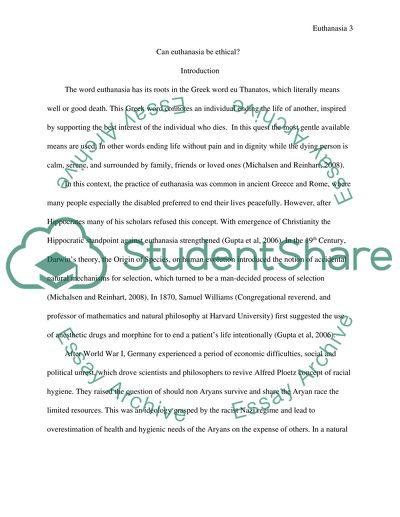Cite this document
(“Can Euthanasia Be Ethical Euthanasia: the Debate Essay”, n.d.)
Retrieved from https://studentshare.org/miscellaneous/1510496-when-is-euthanasia-ethical
Retrieved from https://studentshare.org/miscellaneous/1510496-when-is-euthanasia-ethical
(Can Euthanasia Be Ethical Euthanasia: The Debate Essay)
https://studentshare.org/miscellaneous/1510496-when-is-euthanasia-ethical.
https://studentshare.org/miscellaneous/1510496-when-is-euthanasia-ethical.
“Can Euthanasia Be Ethical Euthanasia: The Debate Essay”, n.d. https://studentshare.org/miscellaneous/1510496-when-is-euthanasia-ethical.


